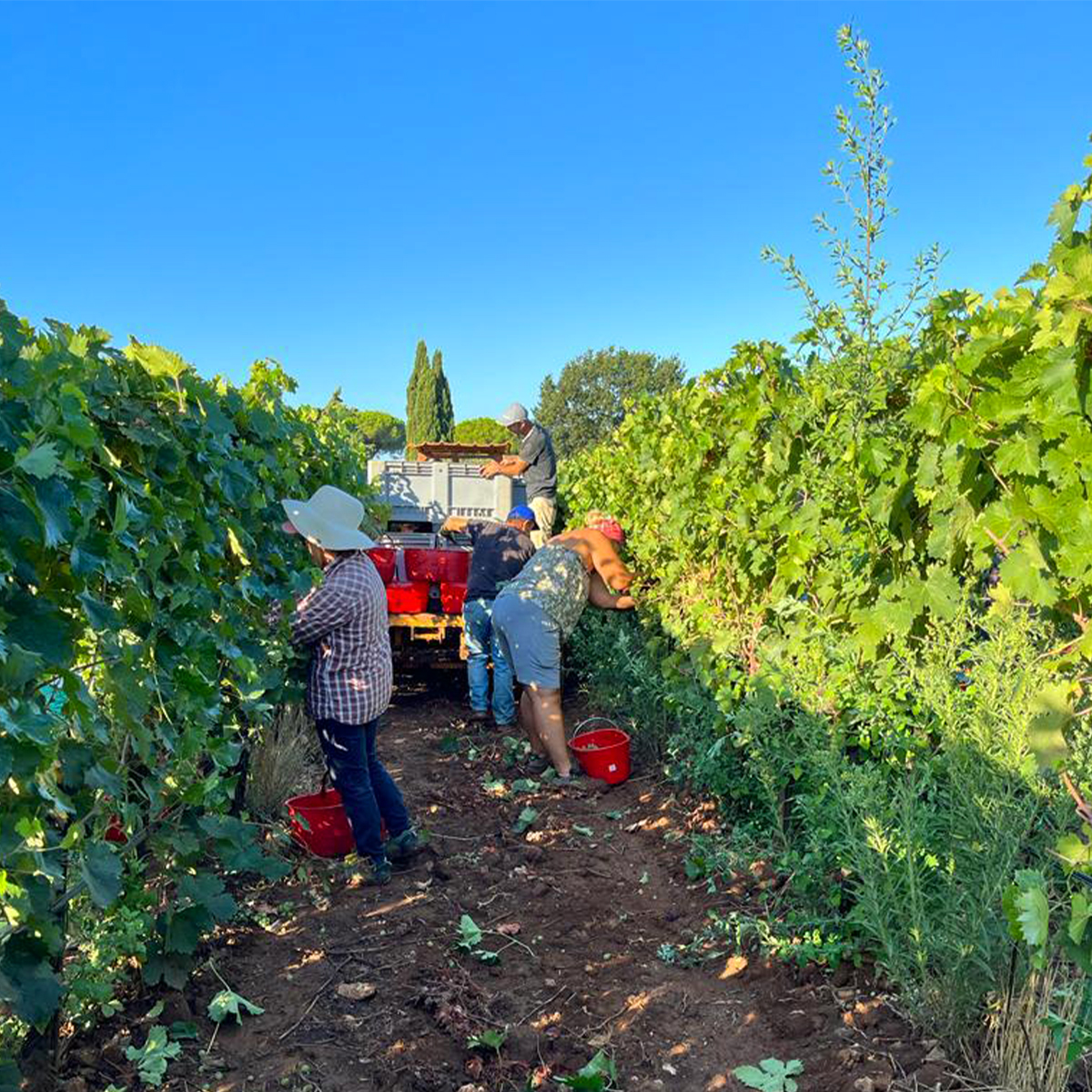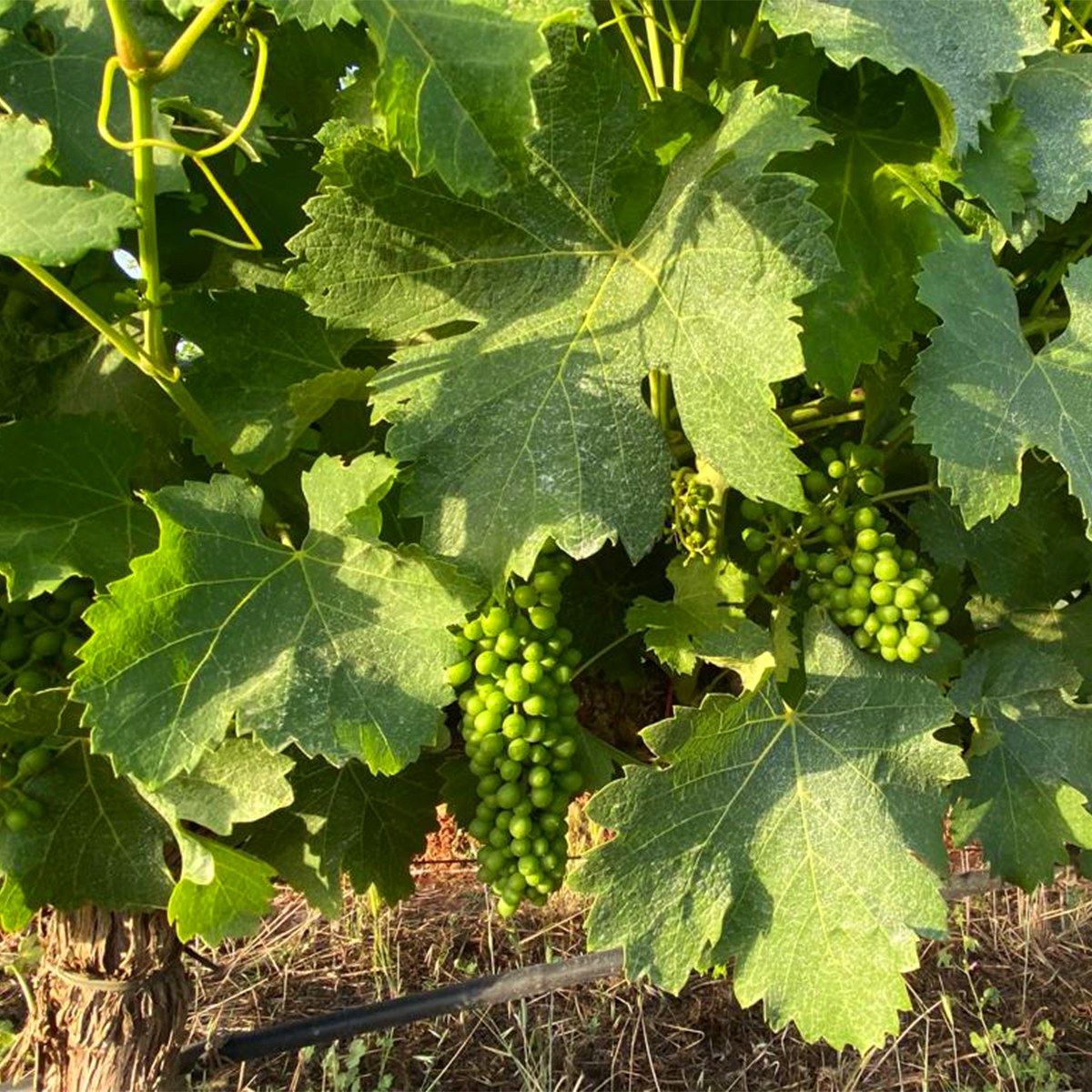After three years of rigorous organic regime, September 2023 marks for our company the first year of harvest with the Organic Certification for our Grapes!
This, for a company like ours, which has always been oriented towards artisanal and eco-sustainable agriculture and viticulture, is another important goal achieved.
We had been thinking about certification for "organic" grapes for some time and three years ago we therefore started all the organic regime procedures which saw us engaged in three years of hard but satisfying work.
The goal is for the viticultural ecosystem to be as balanced as possible in order to function at its best.
Organic viticulture is based on three fundamental principles: preserving ecosystems and long-term soil fertility, maintaining biodiversity and controlling pests in accordance with ecological cycles and processes.

THE ORGANIC SYSTEM IN THE VINEYARD
The adapted philosophy is the biodynamic one, which is very attentive to protecting the environment, saving resources, the biodiversity of the agricultural environment, and the products used to help the healthy growth of the plant and the control of diseases.
FERTILIZERS AND DISEASE CONTROL
Among the different practices used in organic cultivation is the reduction and control of copper used. Even if Copper is of natural origin, it tends to accumulate in the roots of the plant and in the soil, and if this happens it can have various negative consequences on the fertility of the soil, on the quality of the grapes, on the health of the microbial biomass (microbial population of the soil such as mycoorganisms , higher organisms and plants) up to the contamination of surface waters and underground water reserves. We therefore aim for an essential reduction of potentially harmful products and favor the use of organic fertilizers and manure matured naturally in heaps and the use of natural phytotherapeutics to control diseases.
SOWING BETWEEN THE ROWS
Grassing, i.e. sowing between the rows, is a practice that is adapted to different soil and climate conditions. This is achieved both by letting spontaneous grass grow and by sowing mixtures of grasses and legumes to increase biodiversity, improve the structure of the soil, its fertility and its resistance. Furthermore, since herbaceous species naturally attract various useful insects, grassing also helps us in the prevention of various parasitic attacks as well as favors the feeding of the microorganisms present within the soil.
No herbicides or chemical fertilizers are used.
WATER RESOURCES
In the cultivation of vineyards, maximum attention is paid to preserving water reserves, therefore the moderate use of water through irrigation systems and drip micro-irrigation where water is supplied in a measured and constant manner, allowing the vine to grow and ripen without the excess stress that could be caused by long periods of drought. Another practice is that in the absence of irrigation, possible only where viticulture has been practiced for a long time.
The advantages of organic irrigation can be summarized not only in water savings and in an increase in the vine's ability to naturally defend itself.
OUR ORGANIC GRAPES
Expression of our Earth and our way of thinking...
We believe that good viticulture must act responsibly in respect of the territory, the soil, the grapes and avoid excessive exploitation of natural resources in order to pursue a development model that can last and enrich itself over time.
In full respect of biodiversity, we grow the vine in its natural habitat so the plant can grow healthy and bear balanced fruit, capable of expressing and transmitting all the typical characteristics of our territory.












